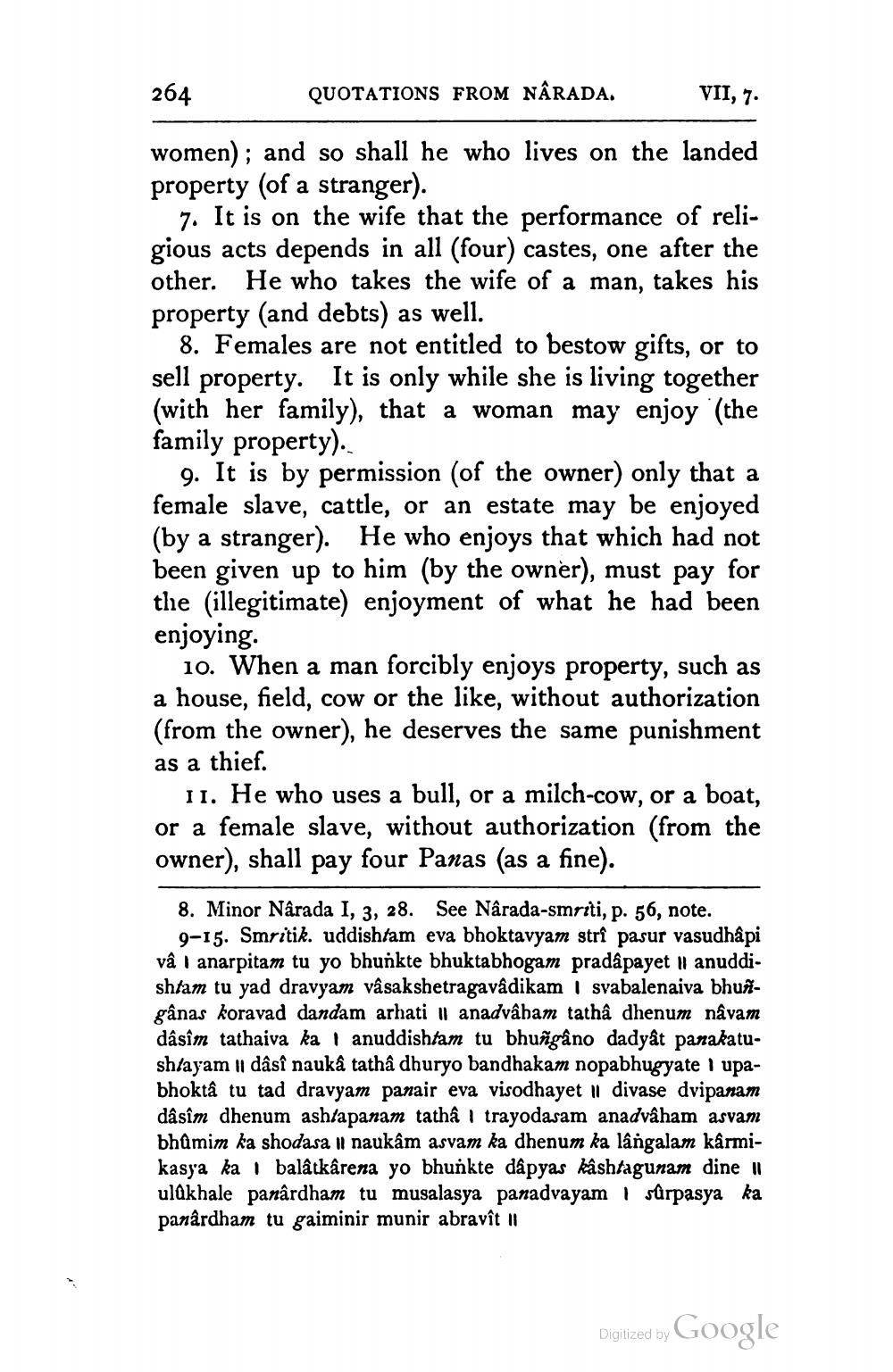________________
264
QUOTATIONS FROM NÂRADA.
VII, 7.
women); and so shall he who lives on the landed property (of a stranger).
7. It is on the wife that the performance of religious acts depends in all (four) castes, one after the other. He who takes the wife of a man, takes his property (and debts) as well.
8. Females are not entitled to bestow gifts, or to sell property. It is only while she is living together (with her family), that a woman may enjoy ' (the family property).
9. It is by permission (of the owner) only that a female slave, cattle, or an estate may be enjoyed (by a stranger). He who enjoys that which had not been given up to him (by the owner), must pay for the (illegitimate) enjoyment of what he had been enjoying
10. When a man forcibly enjoys property, such as a house, field, cow or the like, without authorization (from the owner), he deserves the same punishment as a thief.
11. He who uses a bull, or a milch-cow, or a boat, or a female slave, without authorization (from the owner), shall pay four Panas (as a fine).
8. Minor Närada 1, 3, 28. See Nârada-smriti, p. 56, note.
9-15. Smritik. uddishtam eva bhoktavyam strî pasur vasudhấpi vâ i anarpitam tu yo bhunkte bhuktabhogam pradâpayet #anuddishtam tu yad dravyam vâsakshetragavadikam | svabalenaiva bhutgânas koravad dandam arhati il anadvâbam tatha dhenum navam dâsîm tathaiva ka i anuddishtam tu bhuñgâno dadyât panakatushlayam II dâsî nauka tatha dhuryo bandhakam nopabhugyate 1 upabhoktâ tu tad dravyam panair eva visodhayet il divase dvipanam dâsîm dhenum ashtapanam tatha I trayodasam anadvâham asvam bhQmim ka shodasa il naukâm asvam ka dhenum ka lângalam karmikasya ka 1 balâtkârena yo bhunkte dåpyas kâshtagunam dine il ulûkhale panardham tu musalasya panadvayam | surpasya ka panardham tu gaiminir munir abravît 11
Digitized by Google




